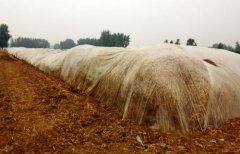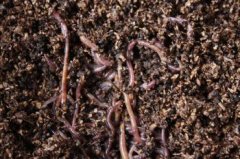How to do composting: production and utilization of Wendan fruit drop composting technology
Production and Utilization of Wendan Fruit drop compost
Hualien area is often hit by typhoons every year during summer and autumn, and Wendan fruit ripening period occurs in July and August, so it often causes great losses to fruit farmers. A large number of Wendan fruit drop has a great impact on the environmental hygiene of orchards, not only because of decay and fermentation, but also breed mosquitoes and flies, and may become a vector for the transmission of fruit tree diseases and insect pests. The experimental results have been achieved, that is, composting Wendan fruit with rice husk and a little rice bran in orchard can not only solve Wendan fruit drop on the spot, but also can be directly applied to increase soil fertility. it is an effective way to save manpower and material resources.
The ingredients of the fruit of Wendan
Wendan (Citrus grandis L. Osbeck) belongs to Rutaceae. The fruit is a special berry, which is composed of spindle pulp vesicles with stalks, which are covered by white spongy endocarp and pericarp containing many oil glands. The contents of various nutrient elements in the pulp and peel of the fallen fruit are shown in Table 1, and the pH value is about 5.0, which belongs to acidity. Due to Wendan's high water content and lack of physical support skeleton, the pericarp contains wax and oil glands that are not perishable, so it is not suitable for composting alone, so dry and loose substances must be added to support the composting structure. if high nitrogen materials can be added, its decomposition can be accelerated.

Production of Wendan Fruit drop compost
First of all, all the fallen fruits are crushed by wheels or machinery, plus two times the volume of uncrushed rice husks and a little rice bran (or soybean meal and livestock dung, etc., accounting for about 1/6 of the total volume), thoroughly mixed and stacked in a corner of the orchard with a height of about one to one or five meters. If the weather is dry, it needs to replenish about 60% moisture, turn the pile every other month, and can be used as spring fertilizer in February of the following year. In this treatment, the uncrushed rice husk is not easy to decompose completely, and its function is to support the composting structure, maintain its ventilation and provide space and carbon source for microbial growth, while rice bran is the main source of nitrogen, phosphorus and potassium. The composting products are composed of undecomposed materials, mycelial residues of microorganisms and their metabolites. The percentage content of nitrogen-phosphoric anhydride-potassium oxide is 1.5-2.0-1.0, as shown in Table 2.
Matters needing attention in the production process
1.
The outer skin of Wendan contains wax and oil glands, which can inhibit the growth of microorganisms, so it is not easy to decompose. Although the Wendan fruit without crushing treatment in this experiment still has a complete fruit shape after six months of composting, it is a necessary step because the microorganism can not pass through its outer skin and enter the interior.
two。
Aeration regulation should be paid attention to when composting is made. although uncrushed rice husk is the main material to support composting, it has the characteristic of maintaining air permeability, but it should be turned moderately. The action of turning the pile about once a month can not only make the internal and external layers of compost mix evenly, but also accelerate the maturity of compost and improve the quality of compost.
3.
Moisture management is also an important factor in the success or failure of compost. Compost should be composted in the open air in order to save cost, but we should still pay attention to the control of humidity, especially in the case of strong sunshine and continuous rainfall, properly covered with impervious cloth, so as to avoid excessive drying affecting composting or nutrient loss with water.
4.
The maturity of compost can be judged by the changes of temperature, color and smell. When the material is mixed and stacked evenly, if the moisture content is appropriate, it will begin to heat within one or two days, and the highest internal temperature can even reach 70 degrees Celsius, and then gradually drop, and the temperature will rise again after each turn, until the temperature change slows down. it means that the composting material has matured. Compost is dark brown from bright yellow. If Wendan fruit has been completely decomposed, it should not be able to see the shape of Wendan fruit and show the smell of soil, rather than the sour smell of fermentation, it can be regarded as mature.
Application of Wendan Fruit drop composting
The composition of compost made from Wendan fruit drop is similar to that of rice husk compost made from chicken manure, rice bran and soybean meal, but the nutrient content of Wendan compost is lower than that of other rice husk composting. Rice husk composting can effectively neutralize soil pH and improve the nutrients needed for the growth of available phosphorus, potassium, calcium and magnesium in soil. Therefore, the application of this kind of compost as spring fertilizer or summer fertilizer in the following year will not affect flower bud differentiation and fruit quality because of excessive nitrogen, so it is a recommended organic fertilizer.
The cultivation area of Wendan in Hualien area has exceeded 2500 hectares, and its fruiting period is the period with the largest number of typhoons. in order to reduce losses, in addition to doing a good job in Taiwan prevention, such as pruning and strengthening pillars, the losses caused by typhoons are unavoidable. but after the disaster, how to reduce the loss and quickly restore the environment of the orchard in the fastest and most economical way, and composting the fallen fruit into compost is the best choice. In addition to reducing the reproduction of diseases and insect pests, the purpose of Wendan composting is to reuse the waste and reduce the treatment cost.
- Prev

Homemade organic fertilizer: what is compost? What are the benefits of composting?
Organic composting, composting is an ancient technology, do not need accurate calculation and advanced skills, as long as you pay attention, can not only solve the problem of waste environmental protection, but also improve soil productivity, it is worth adopting. Now let's take a look at it together. Farm pile
- Next

How to deal with Kitchen waste and how to turn Kitchen waste into Worm manure compost
Research and development of earthworm manure composting: how do you deal with your kitchen waste? if you throw it away, it is also a waste. Here's how to use kitchen waste to make valuable fertilizer. Kitchen waste is made by every family every day.
Related
- Fuxing push coffee new agricultural production and marketing class: lack of small-scale processing plants
- Jujube rice field leisure farm deep ploughing Yilan for five years to create a space for organic food and play
- Nongyu Farm-A trial of organic papaya for brave women with advanced technology
- Four points for attention in the prevention and control of diseases and insect pests of edible fungi
- How to add nutrient solution to Edible Fungi
- Is there any good way to control edible fungus mites?
- Open Inoculation Technology of Edible Fungi
- Is there any clever way to use fertilizer for edible fungus in winter?
- What agents are used to kill the pathogens of edible fungi in the mushroom shed?
- Rapid drying of Edible Fungi

